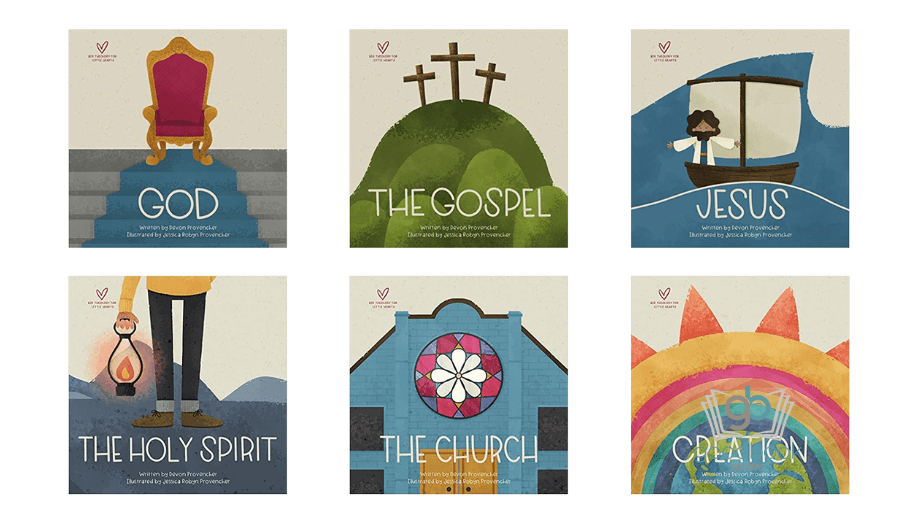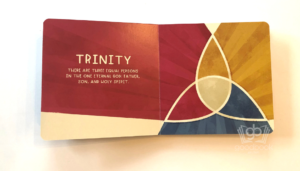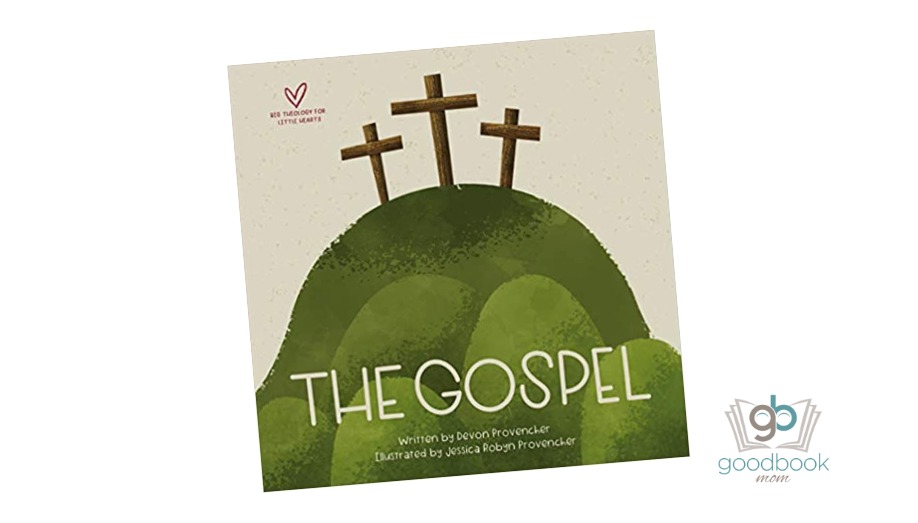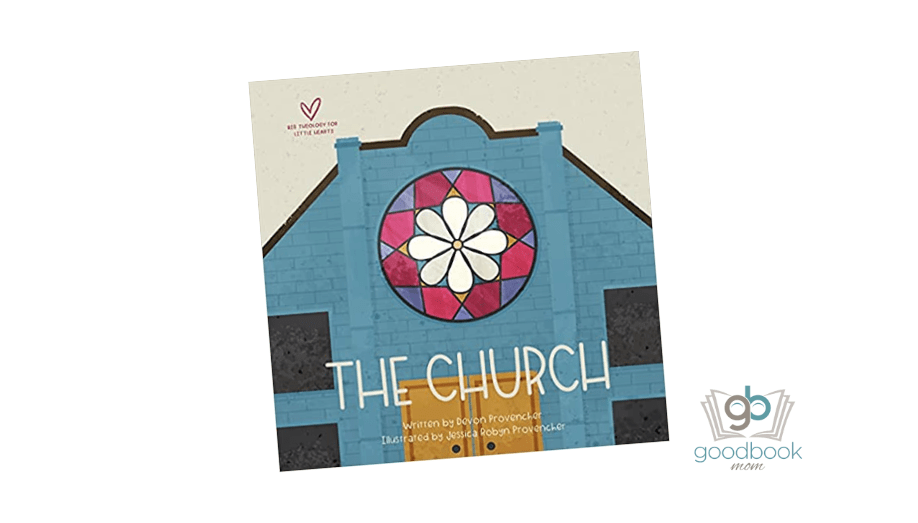
Summary
On each page of these board books, there is one theological term followed by a simplified definition that connects to the book’s theme. For example, in the book titled “Jesus,” one page reads, “Atonement: When he died on the cross, Jesus took the punishment for sin that we deserved.”
Mom Thoughts
 These sturdy board books are filled with beautiful and child-appropriate illustrations to represent each word. I love the idea of introducing theological terms to young children in a simplified form. Then, as young adults, when they hear terms like “rebellion,” “trinity,” and “incarnation,” they will not seem so foreign or daunting. This is a beautiful, biblical, and solid series for your youngest readers!
These sturdy board books are filled with beautiful and child-appropriate illustrations to represent each word. I love the idea of introducing theological terms to young children in a simplified form. Then, as young adults, when they hear terms like “rebellion,” “trinity,” and “incarnation,” they will not seem so foreign or daunting. This is a beautiful, biblical, and solid series for your youngest readers!
A few things to note:
In the book titled Jesus, under the page with the term “incarnation,” the definition says “Jesus took on a human nature and lived among us.” A couple of pages later, the word is “Sinless”, and so it’s clear they didn’t mean to imply a human fallen nature, but using the word “form” would have been a clearer choice.
In the book titled The Holy Spirit, there is a page with the gifts of the spirit described. The description reads, “Special gifts are given to believers, which are used to speak truth and serve the church.” There is a picture of wrapped presents tagged with different spiritual gifts. One gift is tagged “Prophecy.” While some may view this as a Continuationism stance, as a Cessationist myself, I feel I could easily communicate that this gift was for a certain time and purpose.
In the book titled The Church, the stance on baptism seems to lean toward Credobaptism. “Believers show their faith to the world by publicly going into the water. Just as Jesus died, we go under water, and just as Jesus rose from the dead, we are raised from water into new life.”
In the book titled Creation, they take a Complementarian stance. Under “Roles” it reads, “God created man and woman equal but different, with unique roles and responsibilities.” Also, at the end of the book it reads, “Because of what Jesus has done for us, we will live in perfect communion with God once again.” While I don’t believe the intent was Christian Universalism, one could argue that this sentence could have been worded more clearly toward believers.







